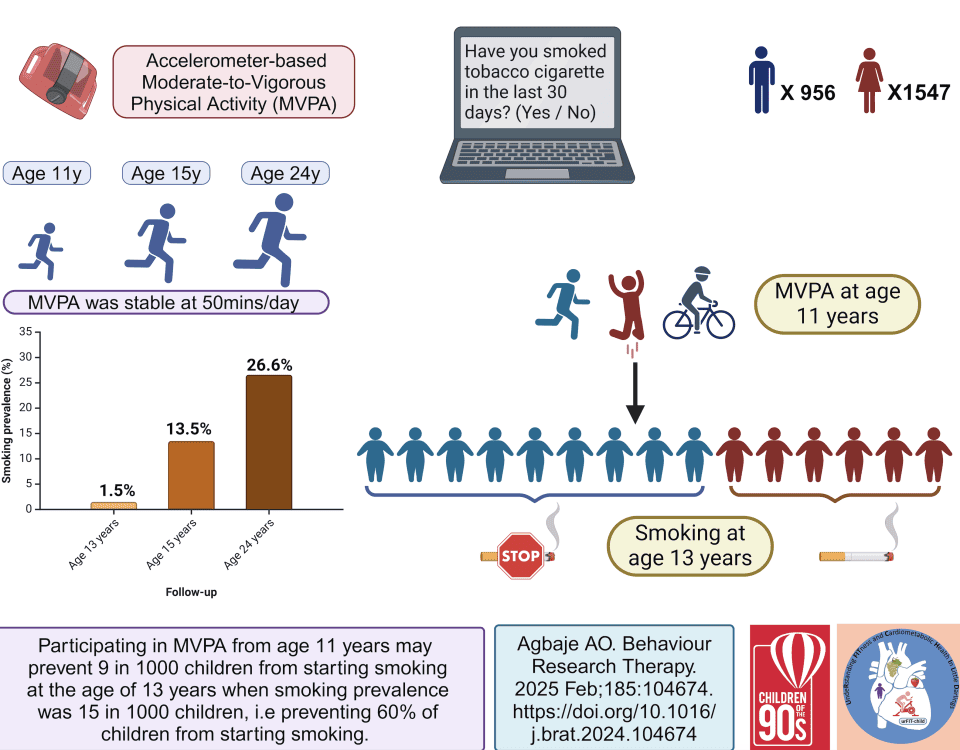
Sedentary behaviour and level of physical activity among people with post COVID-19 condition: associated factors and changes over time
March 27, 2025
Multi-Level Factors Associated with Sedentary Behavior of Adults with Intellectual Disabilities in Community Living Arrangements
April 11, 2025A huge thanks to Unplugged Canada for providing the blog post below!
At Unplugged Canada, we’re a national, parent-led initiative committed to protecting children’s mental health, emotional well-being, and healthy development in an increasingly digital world.
We believe childhood should be shaped by real-world connection, outdoor play, and in-person relationships—not constant connectivity and screen-based distraction. That’s why we’re asking parents across Canada to consider delaying smartphones until at least age 14, and to add their voice to a growing call for policy change that supports families in making healthier choices.
What is Unplugged Canada?
Unplugged Canada was created in response to growing concerns from families about how early and excessive smartphone use is affecting kids’ mental health, sleep, focus, and relationships.
Our mission is to raise awareness of the impacts of early smartphone use on children’s development, to empower parents through community to delay the age of smartphone adoption, and advocate for policy change that supports healthier, more balanced childhoods. We focus on education, empowerment, and action—helping families make informed choices and calling on government leaders to prioritize children’s mental well-being.
We launched the Unplugged Pledge to encourage families to delay giving their child a smartphone until at least age 14. Already, over 2,000 families across Canada have pledged to delay, creating a powerful groundswell of support. Our pledge unites families in the same grade and school, fostering communities of like-minded parents who can navigate this together..
Unplugged Canada is part of a growing international movement. In the United States and the UK, initiatives like Wait Until 8th and Smartphone Free Childhood have rallied over 100,000 parents to delay smartphones, demonstrating a strong global consensus: kids need real-world connection more than constant connectivity.
But awareness alone isn’t enough. We’re now pushing for policy changes that will help protect children from the harms of premature, unsupervised digital access.
The Science: What the Research Tells Us
There is a strong and growing body of evidence that excessive smartphone use—especially when introduced at a young age—is linked to rising rates of anxiety, depression, sleep disturbance, social withdrawal, and developmental delays.
- According to Statistics Canada, 1 in 4 Canadian teens report high psychological distress, and hospitalizations for eating disorders among girls have increased by over 60% since the pandemic (Statistics Canada, 2021).
- The average age of exposure to violent pornography in Canada is 11, and Cybertip.ca reports over 3,600 cases of sextortion per year—a number that is on the rise.
- A Plan International Canada study (2024) found that 75% of girls experience cyberbullying on social media.
- Boys, meanwhile, are increasingly immersed in gaming and digital spaces that promote social withdrawal, hostility, and exposure to extremist content (Haidt, 2024).
In The Anxious Generation, social psychologist Jonathan Haidt documents how the shift from a play-based childhood to a phone-based one beginning around 2012 has resulted in measurable, global mental health declines. His work reinforces what pediatricians, psychologists, and educators have been reporting for years: kids need connection, movement, face-to-face interaction, and offline experiences to thrive.
A Global Movement
Around the world, countries are recognizing that unregulated digital access poses real risks to children’s health and development—and they’re acting. In Australia, new legislation will soon restrict social media access for anyone under 16, supported by a national eSafety strategy.
France now requires parental consent for children under 15 to create social media accounts, and both Germany and the UK have implemented strict age verification laws to prevent minors from accessing explicit or harmful content. Norway is raising the minimum age for social media to 15, while in the United States, states like Arkansas, Utah, and Texas have introduced laws requiring age verification and parental consent for young users.
These efforts reflect a growing global consensus: protecting children online is no longer optional—it’s essential. As other countries move forward with decisive action, Canada has an opportunity—and a responsibility—to do the same.
Our Call to Action: A Policy-Based Approach
At Unplugged Canada, we believe it’s time for our policies to reflect what the science—and thousands of concerned families—are already telling us: we cannot afford to ignore the mental health crisis unfolding among our youth.
The rapid normalization of early smartphone use, unrestricted internet access, and round-the-clock social media has created an environment where many kids are struggling long before they enter adulthood. Parents are doing their best, but without broader policy support, the burden of navigating this complex landscape falls entirely on families.
That’s why we’re calling on the Government of Canada to take meaningful action through three key steps:
- Raise the minimum age for social media use to 16, with robust, government-regulated age verification across all major platforms. Children are being exposed too early to content, influencers, and algorithms designed for adults—and they are not developmentally equipped to handle it.
- Implement age verification requirements for access to explicit online content, including pornography and violent material. The average age of first exposure to porn in Canada is now 11 years old. No child should have unrestricted access to content that can distort development, relationships, and self-worth.
- Expand public education efforts on the mental health and developmental risks associated with early smartphone use and digital overexposure. Schools, pediatricians, and community programs should be equipped to provide families with clear, evidence-based guidance on screen time, healthy tech habits, and alternative pathways to connection and learning.
This is not about banning phones or demonizing technology. It’s about creating a healthier, more balanced digital environment for our children. Just as we introduced seatbelt laws, tobacco restrictions, and safe drinking water standards—it’s time for protections that match the reality of today’s risks.
We’re asking every Canadian—parents, educators, health professionals, grandparents, aunts, uncles, and young adults—to join us in signing this Call to Action.
By adding your name, you’re telling decision-makers: We care deeply about the well-being of our kids, and we’re ready to support smart, science-backed policy that puts their health and future first.
Sign the Call to Action at www.unpluggedcanada.com
Let’s show our government—and each other—that Canada is ready to lead with courage and care.
What We’re Doing to Help
Alongside advocacy, Unplugged Canada is working to provide families with practical support and knowledge. This includes free public education sessions, community conversations, and tools to help parents set boundaries with confidence.
Upcoming Event:
The Smartphone Effect: How Boys and Girls Are Impacted Differently
April 24 | Canada Games Centre Boardroom | Free AdmissionThis live session explores how digital technology affects the mental health and development of boys and girls in distinct ways. Drawing on recent research—including Haidt’s The Anxious Generation—we’ll discuss:
- How social media drives anxiety, body image issues, and perfectionism in girls
- How gaming, pornography, and online radicalization are impacting boys
- Practical tips for creating healthier digital boundaries at home
- How the Unplugged Pledge and policy advocacy can make a difference
You can register for this event and other events hosted by Unplugged Canada on our Events page at UnpluggedCanada.com/events.
Join Us
This movement is for everyone who cares about the next generation—whether you’re a parent, grandparent, teacher, coach, healthcare provider, young adult, or simply someone who believes children deserve a healthy start in life.
You don’t need to be an expert on technology or mental health to make a difference. You just need to care—and be willing to speak up.
If you believe childhood should be protected, we invite you to:
- Take the Unplugged Pledge
- Sign our Call to Action to support policy change
- Attend our April 24 event or host one in your community
We know change takes time, but it also takes people. Your voice adds weight to our message. Your name on this call adds pressure to policymakers. Your conversations with friends, your courage in choosing to delay a smartphone, your participation in community events—these are the ripple effects that build a movement.
Together, we can create a Canada where childhood is protected, where families feel supported, and where mental health is prioritized in every classroom, clinic, and conversation.
Visit unpluggedcanada.com today to learn more about our Pledge, sign the Call to Action, and join us in building a healthier future for our kids.
Photo by Tracy Le Blanc on pexels




